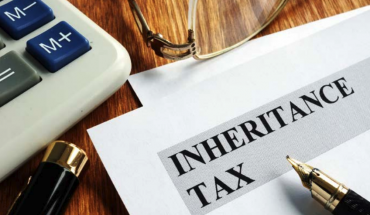Enforcement team to be established with ‘flexing’ of license conditions
Gibraltar is planning to ease some remote gaming license conditions to take account of a general move toward Cloud-based operations and also create a new category of license, embracing start-up businesses locally servicing the established gaming companies
Much-delayed reshaping of the jurisdiction’s world-leading licensing model to future proof it and provide greater license flexibility is under way, but this also will be accompanied by more stringent regulation – especially around Anti Money Laundering (AML) and social responsibility – focused on the effectiveness of operator’s own risk based controls and the outcomes achieved to reduce risk.
An enforcement department is to be established to help maintain the jurisdiction’s reputation and there is likely to be a move towards a range of possible sanctions for transgressions other than just license cancellation, which is considered a blunt instrument.
Industry leaders are looking to have specific areas of operations licensed separately, so that if one part of a business hits a problem the whole generic operating license is not at risk.
Crucially, Gibraltar gaming licenses stipulate that in addition to top management, just about all servers must be physically on The Rock, but in response to industry concerns and greater use of new technology – The Cloud – some servers may be relocated.
Key elements of servers and functions associated with creating a gambling transaction – in payments, transactions, bets placements, trading and debts – will most likely need to remain in the jurisdiction.
The Gambling Act will be overhauled by Spring next year “when the shape, timing and nature of Brexit will be much clearer”, Albert Isola, minister for gaming, told industry “influencers” at the 8th KPMG eSummit at the Sunborn Hotel in late-April.
The revised license regime is likely to embrace the majority of gambling support functions, yet Andrew Lyman, Gibraltar’s Gambling Division (GD) new executive director, assured: “It will not be at any significant financial disadvantage to those who currently sit outside that perimeter, or who need to flex their arrangements”.
The government was spooked in May by a Tier 1 operator’s decision to relocate some (as yet undisclosed) key Gibraltar personnel and functions to Malta, in part as a hedge against losing access rights in Europe after Britain and Gibraltar exit the EU (Brexit). Bet 365’s move comes at a time when increased sector mergers & acquisition (M&A) activity locally and elsewhere is also having an unsettling effect.
Gibraltar’s 30 eGaming licenses are split almost evenly between Business-to-Business (B2B) and Business-to-Consumer (B2C) operations, after a significant growth in local games development software and services supply firms. “New and established B2B and B2C providers continue to make applications for licenses and there is a small handful in train,” Isola revealed and emphasised “still there are 3,250 staff directly employed and half as many again in industry support services.”
A KPMG eSummit gaming audience survey of issues revealed 48% thought freedom of movement across the border was most important [53% in 2017]. Up to 85% of the sector’s Gibraltar workforce lives in Spain, estimates Paul Foster, a Gibraltar Betting & Gaming Association (GBGA) director and treasurer.
Peter Montegriffo, a Hassans partner and specialist gaming lawyer, suggested frontier fluidity was “a matter of primary interest – not concern”, but many things were changing. Some countries required servers to be within the EEA for certain types of business and if as a result of Brexit, Gibraltar is outside the EEA, Montegriffo said firms may need to have servers there.
Lyman concurred: “We are prepared to support cogent and flexible regulatory solutions and whilst we would want as many key functions as possible (people and technology) to remain in this jurisdiction, our regulatory structures are already flexible and can be flexed further by legislative change if necessary.
“The Cloud has potential to reduce technical operating costs and we recognise technical architecture, including platform support, is becoming increasingly multi-jurisdictional.”
In a market presentation Simon French, a leisure analyst at Cenkos Securities, a leading UK stockbroker, revealed the worldwide eGaming market had 10% compound annual growth since 2011 – “at present it’s split roughly a third mobile, and two thirds desktop, but by 2022 the market will be worth €50bn when mobile will account for just under 50% of revenue”.
French held: “The UK is the power house of the EU continent and given the €6bn [annual] revenue, that leaves the regulatory and political risk even more concerning.”
No services trade war
Continued access to EU markets was identified by 38% of those surveyed – sharply up on the 10% recorded in 2017. John Tricker, KPMG Gibraltar managing director, assessed: “Those wanting certainty of a licence outside of Gibraltar will look to have one also in Malta or Ireland as a backstop”.
Lyman told the eSummit: “I would strongly contend that relocation of transactional technology at this stage is premature. Whilst respecting the individual concerns of operators, it is in no one’s interests for a trade war in the area of services and I do not see a ‘wait and see’ approach (or a partial realignment) as being one that lacks sense.”
Bet365 later justified its move: “Due to regulatory developments in various jurisdictions and the evolving global regulatory environment for online betting and gaming, we have decided to increase our existing presence in Malta, which provides a mature and robust regulatory environment for the industry.” The firm added: “The number of people reported as being relocated to Malta [1,100] is wholly inaccurate.”
As Foster, who also is digital regulatory compliance director for Ladbrokes Coral Group, explained: “We all know that if we want to passport our services into Europe after Brexit we are going to have another line, in Malta probably, as the most welcoming of licensing regimes in Europe.
“But while Malta has a lot of people in gaming – second, third and fourth tier operators historically – I feel it doesn’t have the necessary skill sets and availability of people. First tier operators historically have only had a very small base there.” It would be several years before Malta had sufficient numbers of skilled people – “it’s always a risk and I think Gibraltar is already in discussions with Malta about getting closer”, Foster revealed.
“Until the post-Brexit situation is known, no-one will be doing anything”, he maintained. “One firm was rumored to be leaving last year and we all thought they were mad.”
Montegriffo disclosed: “Businesses obviously have to consider all potentialities and we are seeing some adopting a potential ‘Plan B’. All operators are different and each has distinct licensing and business models, but all will be reviewing what the outcome of different Brexit eventualities might be for them. We are very busy assisting with that process.”
Lyman accepted operators needed “to make contingency plans to deal with the Brexit risk and the advance of in-country regulation”. However, “moving people and technology in a knee jerk way carries with it a significant level of business risk and we are here to work with operators; not against them”, he emphasised. “We do not want to present operators with binary options, but equally we are alive to what I would term Brexit opportunism.”
As with financial services, the UK has guaranteed Gibraltar continued access to the UK market from March, through the Brexit transition period and beyond, and it is the only jurisdiction to have received such assurance. Lyman submitted: “We know operators are concerned about access to other European markets, but a cross-jurisdictional approach may be more sensible than putting all your eggs in one basket.”
Exposing Gibraltar’s nervousness at potential loss of key market players – and a possible knock-on reduction in its economic footprint – Lyman cautioned: “What I would say to our operators is hold your nerve and work with the Government and the [GD] in a transparent way to facilitate the contingent measures you need to take, without burning any bridges and leaving you able to access all existing markets.
Don’t be seduced
“Do not be seduced by what could be short lived financial and perceived technology advantages elsewhere and work with us to fashion the future,” he implored.
Large B2B operators with history, like NetEnt and Playtech, are licensed, but Foster identified: “There are a lot of start-ups involving people who have been in the industry for a long time generally in Gibraltar, and they want to set up new enterprises – they don’t want to move – but under the current licensing regime there is no way they are going to be allowed to have a license.
“I think we are moving to a situation where [GD] will start doing due diligence on the individuals in B2B start-ups and then license them.”
Minister Isola vowed recast gaming charges will not lead to higher industry costs. Gibraltar gaming licenses are considered quite expensive, around £85,000 minimum each, including turnover tax, making for a maximum payment of some £425,000 and each firm has several licenses.
Lyman admitted: “The licensing bar is high, but in the future we will not automatically dismiss well-funded start-ups with experienced management. I believe Gibraltar, with its concentration of technology and IP [intellectual property] can be an incubator for tech businesses.”
AML/CTF (Counter-Terrorism Financing) and consumer protection is key for all UK and Gibraltar major gaming firms, which account for some 80% of sports betting and much of UK gaming.
French cautioned: “The [UK] National Crime Agency is something we all have to be very aware of given the big amounts of money now changing hands that will attract the interest of a far wider range of regulatory authorities, and compliance tightened.”
Foster believed having new regulators in both jurisdictions – Gibraltar’s Lyman and UK Gambling Commission’s chief executive, Neil McArthur – “will result in it being more easy for them to work together and achieve co-operation. There is no chance that Gibraltar’s regulatory body will give up its independence, because the operators genuinely don’t want that”, and some variation in approach can be expected.
Looking ahead, the largely untapped US market “could increase dramatically”, following recent US Supreme Court rulings. “North America represents a potential US$14bn opportunity in the near term should there be wholesale re-regulation or deregulation of the US market and to date most success there has been achieved by William Hill in Nevada, creating a world-class offer”, French maintained.
The US has little on-line gaming experience. “Yes, some people will go out, but key operations will remain in Gibraltar, so that there’s no risk of destabilising the rest of the business, or – as PartyGaming used to do – operate from here and run the US from Gibraltar,” Foster predicted.
Some firms operate Asian-facing operations from Gibraltar, “because the skill set built over time here, cannot be gained easily anywhere else. I don’t expect to see much in the way of relocation of personnel”, the GBGA director contended.
As Lyman noted: “I do not underestimate the challenges faced by the industry, but Gibraltar is, and can remain, a first tier regulatory jurisdiction for remote gambling, supporting a critical mass of operators in both the B2C and B2B sector.”





